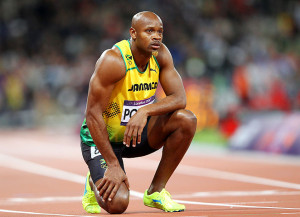The effects of the pre-IAAF World Athltics meet dope testing campaign is leaving very sour tastes in the mouths of the athletes found to have tested positive for performance enhancement drugs. Mostly members of the Jamaican contingent, where potentially that country intends to holds its own against the world in the areas of short distance sprint events and the relay, it has been a nightmare in the last two weeks. The discoveries hitting the media about them, and the rest of the world, threatens to the athletic prowess of these athletes and casts great aspersion on the credibility of the results of a game yet to hold in the event that any of them should shine brilliantly.
The sole ‘winners’ so far has been the IAAF showing that it intends to send out a clear message to the rest of the world and participating countries that it intends to organise a credible world championship meet (in the event that records tumble).
The IAAF has started and will continue to the event proper where a comprehensive blood testing programme will be organised at the World Championships in Moscow. This will be part of a sophisticated anti-doping programme for the 14th edition of the championships taking place between August 10th and 18th.
A couple of years back the International Association of Athletics Federations (IAAF) collected blood samples from all athletes taking part in the World Championships in Daegu, Korea in an anti-doping exercise that was conducted in close co-operation with the Lausanne WADA-accredited Anti-Doping Laboratory and with the support of the World Anti-Doping Agency and local partners and was unprecedented in world sport history.
It was the first time that nearly 2000 elite athletes competing in a major sports event were blood tested under the same optimal conditions, within the same time period.
According to a statement issued by the IAAF media department Wednesday, the blood testing in Moscow will be conducted in support of the Athlete Biological Passport programme.
As in Daegu: “It will cover all disciplines in athletics and a wide range of relevant biomarkers. Notably, the analyses will not only screen markers indicating the use of EPO or blood manipulation in endurance events but also markers potentially indicating steroid or growth hormone doping more relevant to the power disciplines.
“Suspicious results from the screening analyses performed on-site could, where appropriate, trigger follow-up target tests in Moscow in urine (notably for EPO) and/or further analyses for prohibited substances or prohibited methods in blood in Lausanne,” said the statement.
It said that all results can ultimately be used in support of an anti-doping rule violation if an athlete’s overall biological profile is found to be consistent with the use of a prohibited substance or a prohibited method, in accordance with IAAF Anti-Doping Rules and Regulations.
The blood testing programme in Moscow will be organised in addition to the regular doping controls that are collected at ever IAAF World Championships.
“Moscow 2013 will witness a programme of approximately 500 urine samples, in and out-of-competition combined. In accordance with the IAAF policy implemented for the first time in 2005 at the World Championships in Helsinki, urine samples collected in Moscow will be kept for long-term storage for possible re-analyses at a later stage in anticipation of new scientific developments,” concludes the statement.








